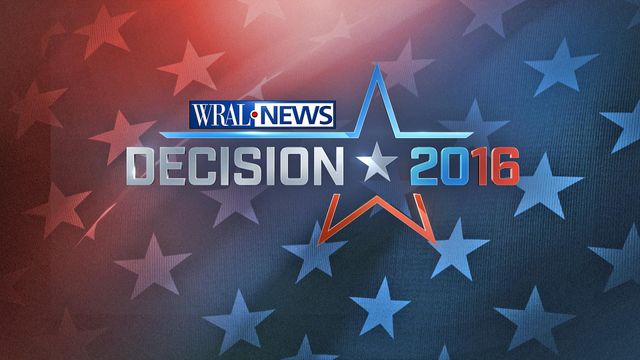One-third of state legislative seats will be uncontested in 2016
When the candidate filing period closed at noon Monday, 13 state Senate candidates and 41 state House candidates faced no opposition. Nearly 20 more races will be settled in the primary.
Posted — UpdatedIn 18 other races, the March 15 primary will all but settle the contest – no Democrats filed in two Senate races or six House races, and no Republicans filed in 10 House races – barring an unusually successful run by an unaffiliated or write-in candidate.
"Those kinds of figures are an embarrassment in a democracy," said Steve Greene, a political science professor at North Carolina State University.
There are 50 state Senate seats and 120 state House seats. Nine Senate Republicans and four Senate Democrats face no challengers, as do 22 House Republicans and 19 House Democrats.
There's an outside chance that some of the unchallenged candidates may eventually face some sort of opposition. Unaffiliated candidates still have time to collect signatures and get on the ballot without a party label. Also, North Carolina law allows for write-in campaigns. However, only one unaffiliated candidate – Rep. Bert Jones of Rockingham County – has won a state legislative seat in recent memory, and he later became a Republican.
The state House's lone unaffiliated member, Rep. Paul Tine of Dare County, switched his affiliation after being elected as a Democrat and has declined to stand for re-election in 2016.
"I think you take that as nobody really wants to run," said Thom Little, a University of North Carolina at Greensboro political science professor and an expert on state legislatures. "The reality is, public service is something that people don't want to do."
Another reason that some candidates will face no opposition is that many state legislative district skew heavily to favor either Democrats or Republicans, making challenges by the non-dominant party a quixotic affair. For example, Rep. Darren Jackson's eastern Wake County district tilts heavily Democratic, making a successful challenge by a Republican unlikely.
In reality, gerrymandered boundaries will even keep some races with multiple challengers from being truly contested affairs in the November general election.
"In a state so closely divided on every public opinion measure, to have the vast majority of legislative seats not be truly competitive is just appalling," Greene said.
At least some party officials were pleased with their crop of candidates.
"We're excited to see so many great candidates begin campaigns to move North Carolina forward," North Carolina Democratic Party Chairwoman Patsy Keever said in a statement. "The Republican politicians currently running Raleigh simply have the wrong priorities. It's time to put good jobs, quality schools and middle-class families first again. I look forward to working with all of these great candidates."
Libertarians, the only third party to officially have access to the ballot in North Carolina, is providing the only competition to major party candidates in two state Senate races as well as a pair of state House races. For example, Rep. Yvonne Lewis Holley, D-Wake, will face Libertarian Olen Watson III in the fall election. Libertarians have not sent a member of their party to the state legislature in the past decade.
Although there are robust crops of candidates for races at the top of North Carolina's ticket, particularly U.S. Senate and governor, uncontested races are by no means unique to state legislative races.
For example, in Wake County, one of five county commissioners seats on the 2016 ballot has only one contestant; and one of four county commissioner races in Johnston County will likely be uncontested.
Related Topics
• Credits
Copyright 2024 by Capitol Broadcasting Company. All rights reserved. This material may not be published, broadcast, rewritten or redistributed.






